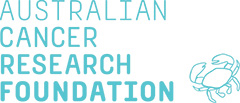For the past decade WEHI’s cancer research programs have been generously supported by the Australian Cancer Research Foundation (ACRF).
The ACRF has contributed almost $6 million to the institute’s cancer research. This is assisting our researchers to unravel the big questions in cancer research, by providing new insights into how cancer develops, and how it can be more effectively treated.
The most recent grants from the ACRF to the institute have been:
- $2.5 million in 2015 to support the establishment of the ACRF Breakthrough Technologies Laboratory, a facility to enhance and accelerate research into many of Australia’s most common, and most deadly, cancers.
- $2 million in 2012 to enable the fit-out of new cancer laboratories in WEHI’s ACRF Stem Cells and Cancer and ACRF Chemical Biology divisions, providing an important boost to the institute’s cancer research programs.


 Chairman of the ACRF Board said Australia was at the forefront of cancer research globally.
Chairman of the ACRF Board said Australia was at the forefront of cancer research globally.